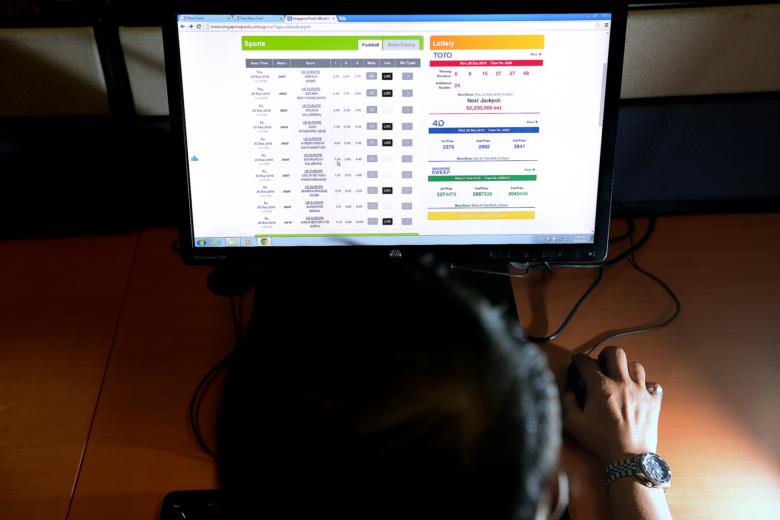More people in Singapore gambled last year: Survey
Sign up now: Get ST's newsletters delivered to your inbox

The median betting sum last year was $30, higher than the average of $20 in 2014, according to the survey released on March 26, 2018.
PHOTO: THE NEW PAPER
SINGAPORE - More Singaporeans are trying their luck at games such as 4D and Toto, according to the latest survey by the National Council on Problem Gambling released on Monday (March 26).
The 2017 survey found that 52 per cent of the Singapore citizens and permanent residents aged 18 and above polled said they had gambled in the past year, up from 44 per cent in the 2014 last survey.
The increase is statistically significant, said the council, which has been conducting the survey every three years since 2005 to find out the extent and pattern of gambling here. Some 3,000 people were polled last year by the body tasked to tackle gambling addiction.
Council member and psychology professor David Chan said the rise in the proportion of those who gambled last year was primarily due to more people betting on 4D, Toto and gambling socially, such as playing mahjong with friends.
In fact, 4D is the most popular game among those polled last year.
Some 42 per cent placed a wager on 4D, followed by 36 per cent for Toto and 21 per cent for social gambling. In comparison, just 1 per cent of those polled had gambled online, betted on horses or tried their luck at the jackpots in the local casinos.

The growing popularity of 4D and Toto is reflected by the billions spent on these games.
In the Singapore Totalisator Board (Tote Board)'s last financial year, which ended in March last year, $7.2 billion were waged on lotteries like 4D, Toto and Sports Betting. This was a 15 per cent jump from the $6.2 billion spent in its 2012/2013 financial year.
The Tote Board owns Singapore Pools, the sole legal operator of lotteries and sports betting here.
The survey also found that more Chinese Singaporeans or PRs gambled last year - 62 per cent of them did so, up from 53 per cent in the 2014 survey.
In fact, the Chinese love a flutter. Almost two in three Chinese had at least one wager last year, compared with one in three Indians and less than one in 10 Malays.
This is because many Chinese learn to gamble when they are young, said observers and those who counsel gambling addicts. Gambling with family and friends, especially during festive seasons, is socially acceptable, they added.
They did not think that the rise in the percentage of those who had taken part in gambling is a cause for worry, as most parted with just a small sum - the median bet last year was $30 a month, up from $20 a month in 2014.
But observers and counsellors said one thing is clear: the lure of million-dollar jackpots, like the recent $12 million Toto Hongbao draw, is driving more people to test their luck.
Said Mr Billy Lee, executive director of Blessed Grace Social Services, which runs a support group for gambling addicts: "People see their friends or colleagues buying Toto, hoping to strike the million dollar prize and they also join in and try their luck. And Singapore Pools have their outlets all over Singapore, so it's very easy to place a bet."
Take for example, housewife Nancy Tay, 60, who spends a few dollars on Toto each week with her husband just "for fun".
Meanwhile, the percentage of those who are addicted to gambling, known as pathological or problem gamblers, has inched up from 0.7 per cent in 2014 to 0.9 per cent last year, although the change is not statistically significant.
While the ratio of gambling addicts remains largely stable, it is still a cause for concern, said Prof Chan. Addicts continue to show a lack of self-control, gambling beyond their means and with a greater frequency than intended, he added.


